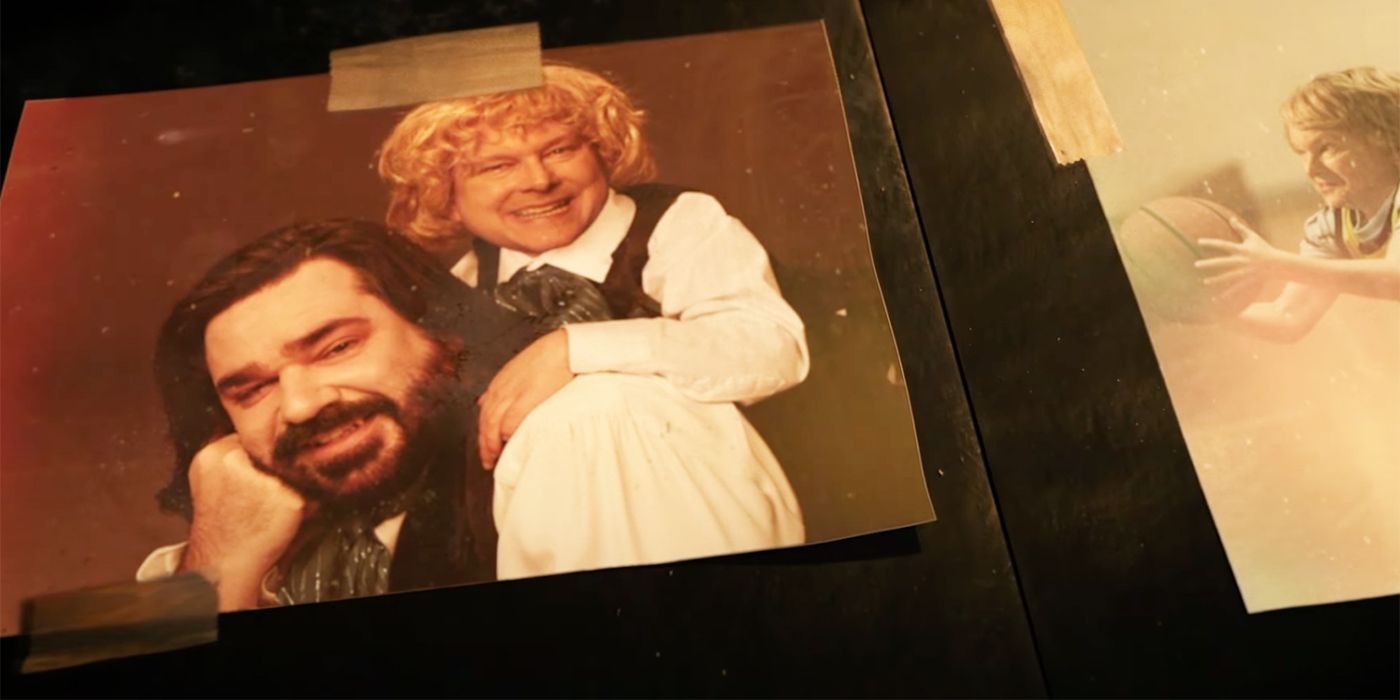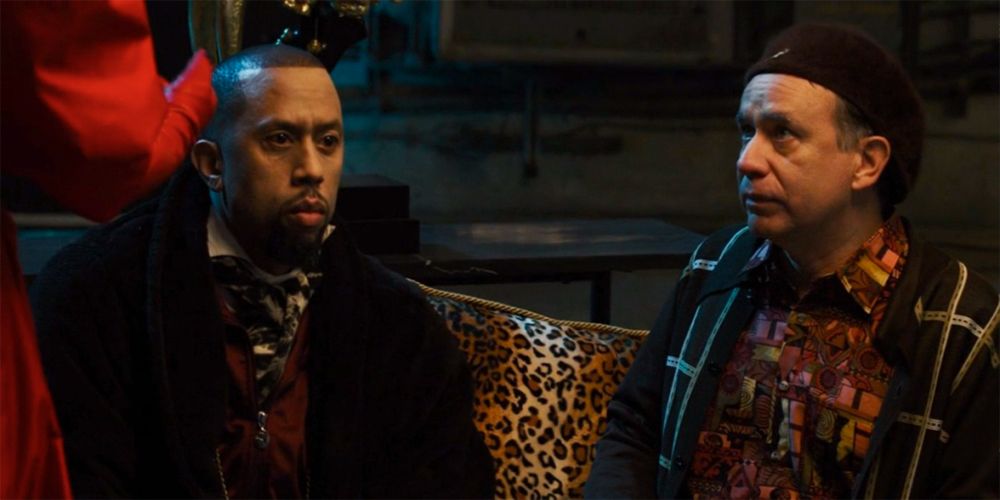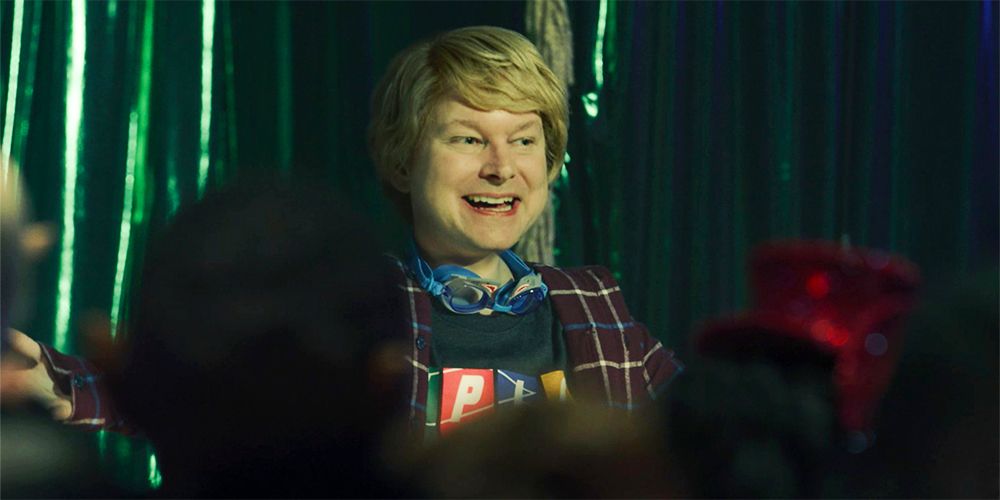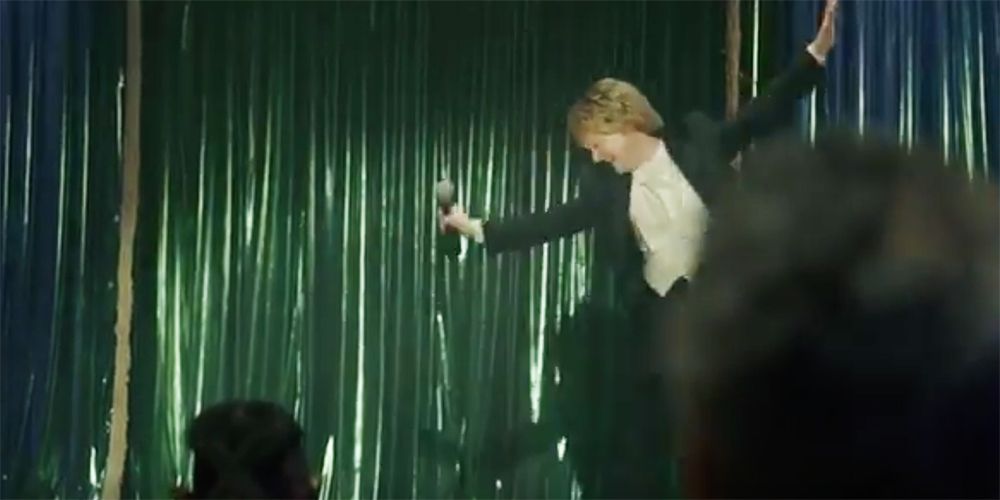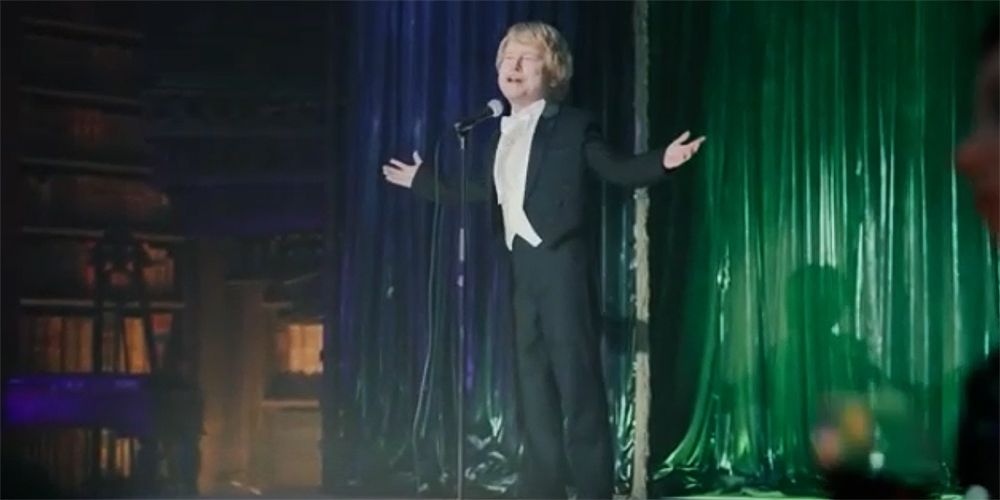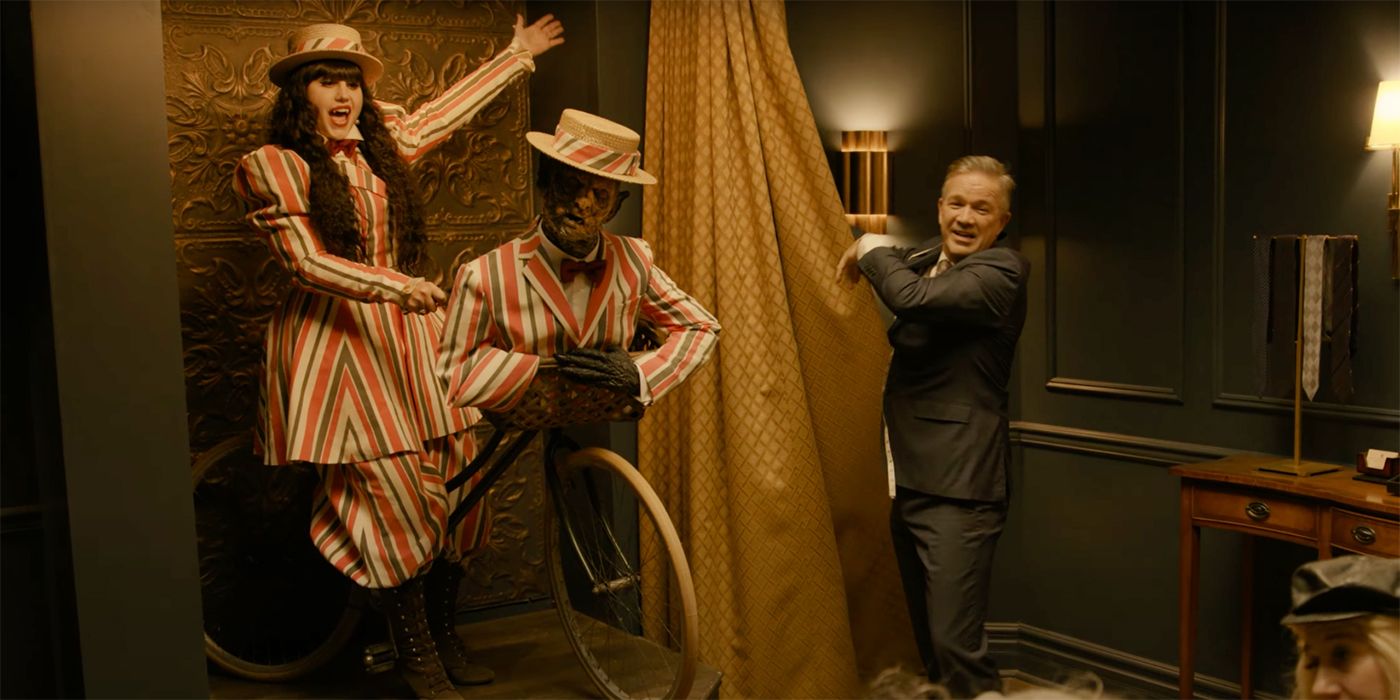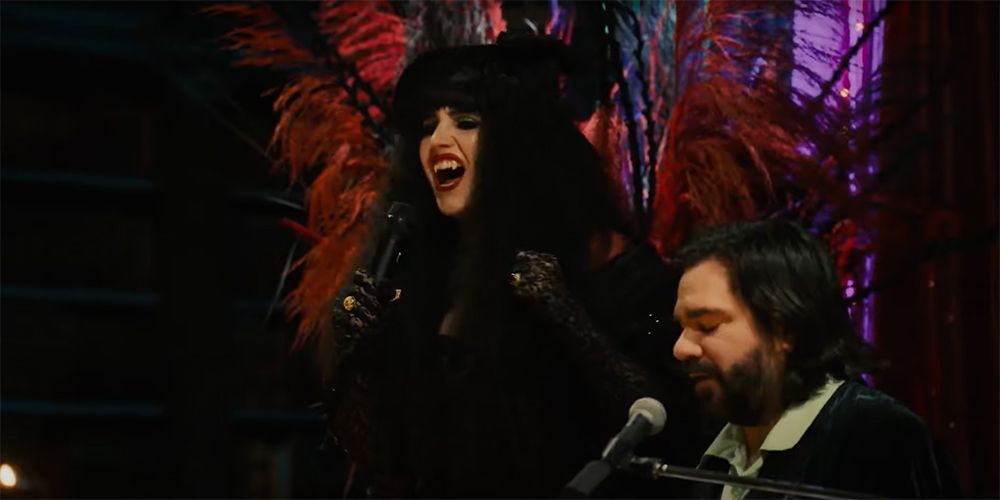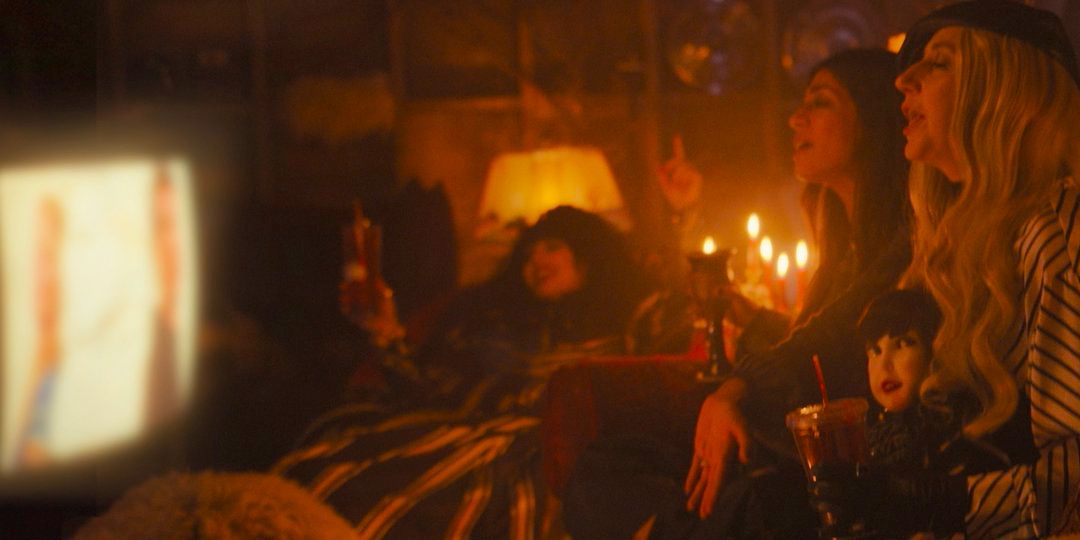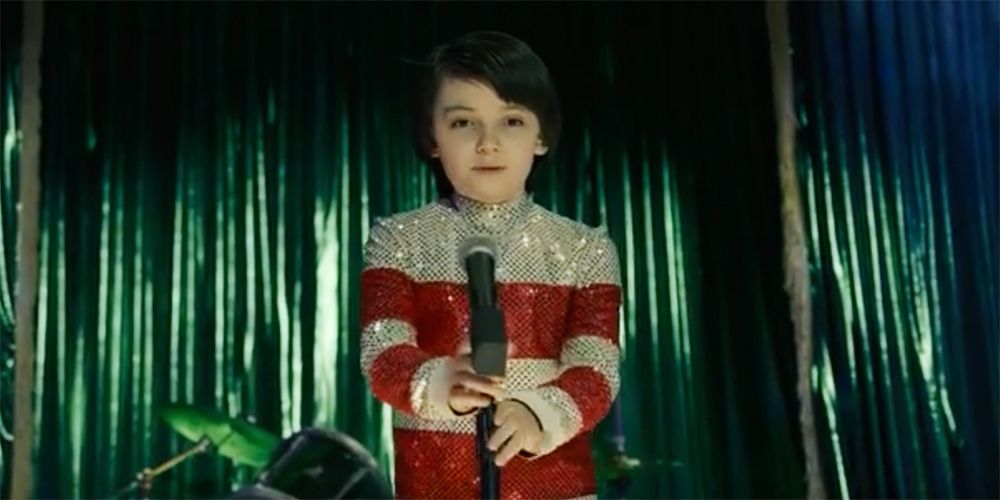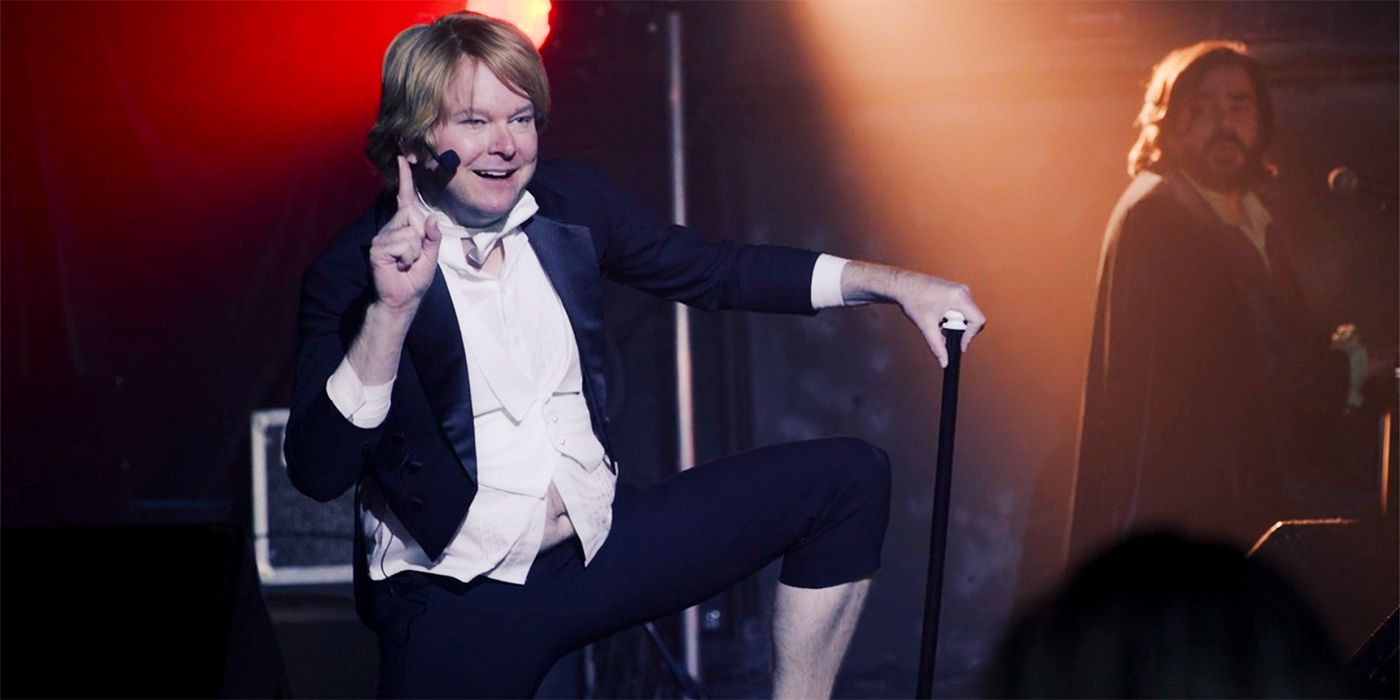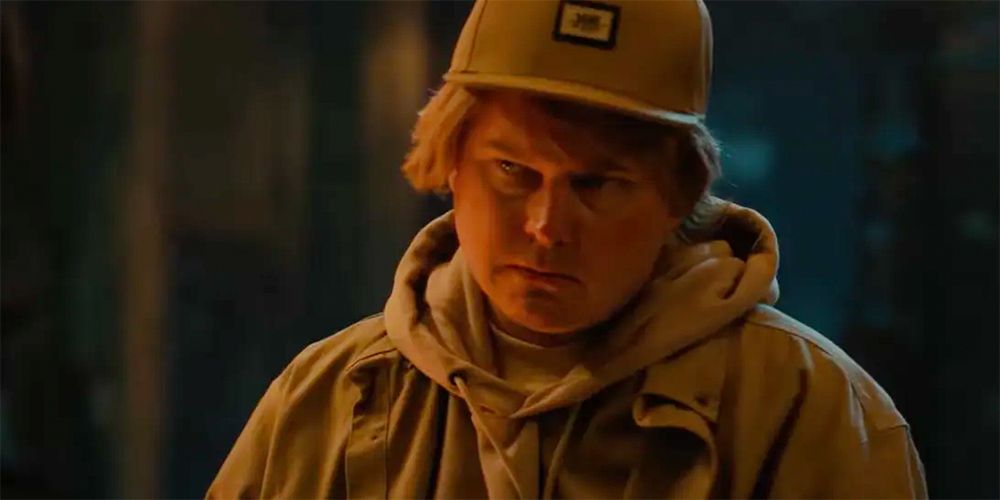Editor's Note: The following article contains spoilers for Season 4 of What We Do In The Shadows.The most recent season of What We Do In The Shadows was the most musical so far. An already musical show, Season 4 builds off of the reputation the show has for its soundtrack and weaves music right into the story of the show. Their theme song is a 60s folk song called “You’re Dead” by Norma Tanega. After social media attention and their theme song becoming a bona fide “TikTok song,” this new season of What We Do In The Shadows leaned heavily into music of all genres. Focusing specifically on musical theater and show tunes of the early 20th century, the show also has branched out into other genres of music. From rap to jazz to 80s classics, the show also explores how music fits into different film genres. Music can contribute to so many kinds of audio gags, inside jokes, and plot development. What We Do In The Shadows Season 4 has made good use of every way in which music can add to a cinematic story. Here is a list of every musical reference in this season of What We Do In The Shadows.
Episode 3: Affion Crockett as the rapper Richie Suck
Primarily a comedian, Affion Crocket has appeared in films, television shows, and video games. His most recent acting credit is in this most recent season of What We Do In The Shadows where he plays a famous vampire rapper named Richie Suck. Hired to perform at Nadja’s (Natasia Demetriou) new nightclub, Richie Suck gets on stage and tells the vampires as much as they love his music, he’s trying his hand at observational standup comedy. An homage to his true profession, Affion Crocket released a five-song EP in 2021. Art imitates life in this episode, and the vampires get a talented comedian and rapper to walk among them.
Episode 3: Born to Dance
Baby Colin Robinson (Mark Proksch) starts his career singing and dancing at Nadja’s Night Club by running up on stage and doing a cover of the song “Born to Dance” from the 1936 musical comedy, Born to Dance. The movie is about a sailor who helps a young dancer make her way to the top of fame on Broadway. It’s full of heartbreak, nightclubs, and classic show tunes making it the perfect movie for What We Do In The Shadows to reference songs from.
Baby Colin distracts from the chaos of a fight that has broken out over Richie Suck’s stand-up comedy by getting on stage, grabbing the mic, and singing one of his favorite songs: “Born to Dance.” He emulates the tap-dance from Born to Dance by stepping on beer bottle caps and showing his audience what it was like watching Elanor Powell perform the same song.
Episode 4: Let’s Face the Music and Dance
A song by Irving Berlin, “Let’s Face the Music and Dance” is from the film Follow the Fleet to add musical backing to a dance performed by Fred Astaire and Ginger Rogers. The song has since been covered by numerous artists such as Nat King Cole, Ella Fitzgerald, Frank Sinatra, and Baby Colin Robinson in one of his performances at Nadja's club.
The feel-good, classic Hollywood nature of the song makes it a perfect fit for the eerie, yet golden age vibe that Baby Colin brings to Nadja’s. The song was written to encapsulate the ideas and values prevalent that Hollywood stood by in 1936. Irving Berlin also wrote music that was symbolic of the culture of New York, which What We Do In The Shadows often tries to do as well. Irving Berlin also suffered much criticism for writing “Jewish” music, and this othering could be a reason What We Do In The Shadows chose to include his music. As a way to celebrate differences, the inclusion of Irving Berlin’s “Let’s Face the Music and Dance” celebrates groups that are othered. Groups that live in the shadows, one could say.
Episode 4: PEnnsylvania 6-5000
“PEnnsylvania 6-5000” is a song performed by the Glenn Miller orchestra. The name of the song is supposedly the oldest phone number in New York City, belonging to Hotel Pennsylvania.
In What We Do In The Shadows, “PEnnsylvania 6-5000” plays when our main characters are on the subway to the Night Market. When “PEnnsylvania 6-5000” plays, a mythical creature disguised as a human, farts to the beat, and only those unbothered by the smell make it to the subway stop for the Night Market. Seeing as the Night Market is an old and mythical place, it makes sense that the song based on the oldest phone number in the city would be the test for getting into the oldest market in the city. The exact age of the phone number is unknown. Maybe because it belongs to the Night Market.
Episode 5: Meet Me Tonight in Dreamland
Baby Colin Robinson sings “Meet Me Tonight in Dreamland” a couple of times throughout Season 4 of What We Do In The Shadows. So, what does it mean? “Meet Me Tonight in Dreamland” is one of the most popular songs of the early 20th century. The history of the song is an interesting one. After being written, it was sold to the largest music publisher in Chicago. The authors never saw a cent from their very famous song. Reine Davies’s photo was attached to the sheet music and once her face appeared on the cover, it sold over two million copies in the first year. That seems like something Nadja would have been able to do.
Episode 6: You Make My Dreams Come True
“You Make My Dreams Come True,” by Hall & Oates, plays under the makeover montage of Baron Afanas (Doug Jones). This upbeat and lively song underscores a staple of the romantic comedy genre - when the main characters dance and try on clothes to era-appropriate music. This specific montage was a spoof on 80s John Hughes-style movies. Baron Afanas, Nadja, The Guide (Kristen Schaal), and The Sire (Jean-Michel Richaud) try on many different outfits from different centuries, and they laugh and have a great time. It is a hilarious scene that pokes fun at cheesy 80s makeover montages all to the tune of a classic Hall & Oates song.
Episode 6: One of Laszlo and Nadja’s famous duos “On the Wedding Night"
In a previous season, Laszlo and Nadja told audiences about their musical partnership where they sang popular songs with much sillier words. Laszlo tells his roommates upon hearing the song “Come on Eileen” that the song was stolen from him. In 1852, he had written the same song, but it was called “Chum on Irene” and it was an ode to the local fishmonger. There was a whole episode dedicated to Laszlo and Nadja’s silly versions of songs we all know and love today. In Nandor’s (Kayvan Novak) wedding episode, the episode closes out with a reference to the season before it. Laszlo and Nadja sing the episode into the credits with a song they have written called “On the Wedding Night.”
Episode 7: Mamma Mia
As part of her girl's night in, Nadja and her girl gang watch Mamma Mia! and sing along to their favorite ABBA tunes. Nadja says it’s her absolute favorite movie to watch when she’s missing home because it takes place in the place where she is originally from. However, Laszlo never lets her watch it because the plot reminds him too much of all the children he fathered and abandoned when he was still a human. Classic Laszlo. The scene where they watch Mamma Mia! and sing “S.O.S.” is a sweet scene where you get to see the human side of Nadja that just loves to have fun. This season has spent a lot of time building her into a strong, smart, and ambitious nightclub owner, so it was nice to see her be able to be her old self again even if just for a minute or two.
Episode 9: Let Me Call You Sweetheart
“Let Me Call You Sweetheart” is a song from 1910 that has been recorded many times by many artists, most notably Bing Crosby. The song has become so popular, in fact, that the Library of Congress added it to the 2015 National Recording Registry. This registry selects audio recordings that are significant in some way, be that culturally, historically, or otherwise significant.
As Nadja’s falls further and further into debt, Nadja looks for new ways to draw in customers. Without Baby Colin Robinson, Nadja looks for new child acts to exploit. One of those acts is a child singing “Let Me Call You Sweetheart.” Drunk on the blood of alcoholics, Nadja interrupts the child’s song by yelling, “You don’t got the range, babes!” And with that, it’s on to the next audition.
Episode 9: Rap Tap on Wood
“Rap Tap on Wood” is a callback to the first song Baby Colin Robinson sang at his new gig at Nadja’s. Also from the film Born to Dance “Rap Tap on Wood” highlights Eleanor Powell singing the words of Cole Porter and dancing her own dance.
When Baby Colin Robinson and Laszlo hit the road to make it big, he chooses “Rap Tap on Wood” to perform. However, he’s not a baby anymore. He’s a teenager trapped in an adult body pretending to be a baby singing old-timey jazz songs. It’s quite the on-screen image.
Episode 10: Baby Colin Robinson gets really into heavy metal…
As Baby Colin Robinson gets more and more “emo” wanting to know about where he’s come from, his music taste begins to change. Straying as far as he possibly can from the show tunes of the early 1900s, Baby Colin Robinson starts blasting heavy metal music at every chance he gets. No longer interacting with his parental figures Guillermo (Harvey Guillen) and Laszlo, Baby Colin’s headphones are always on playing heavy metal. And when Baby Colin isn’t in his bed with headphones on, he’s in the basement smashing holes in the wall with a hammer listening to heavy metal. That’s what he’s doing when Nandor comes to the basement to confront him about respecting his elders, and that’s what he’s doing when he discovers a secret door in the basement.
Episode 10: Sunrise, Sunset
The singing of “Sunrise, Sunset” is the most emotional and intense musical reference in Season 4 of What We Do In The Shadows. In the musical Fiddler on the Roof, Laszlo’s rendition of “Sunrise, Sunset” takes over the opening credits. Although the images are the same, the last episode of Season 4 didn’t play their iconic theme “You’re Dead” by Norma Tanega. Instead, this last episode featured Laszlo singing an emotional and passionate piano cover of “Sunrise, Sunset.” It’s a deep song that holds a lot of feelings and history. The song is about one chapter closing and another chapter beginning. More specifically though, it’s about a parent’s pain-filled desires to hold on to the young years of their children. For the show, this song holds a lot of meaning in its last episode. Not only is the literal chapter ending, but Laszlo’s chapter as a father is ending. He has learned so much from caring for Baby Colin Robinson. He has learned how to love and care and impart his wisdom to the younger generation. As Baby Colin grows up so quickly and abandons his old passions, Laszlo feels left behind. His sunrise and sunset are happening whether he is ready or not.
As this season got more into Guillermo’s sexual identity and his struggle to come out to his family, What We Do In The Shadows has started to embrace its role as a show about outsiders just trying to find their way. As a song from a Jewish musical, it feels like the show is drawing from other social outsiders and stories about outsiders to create the soundtrack of their show.

